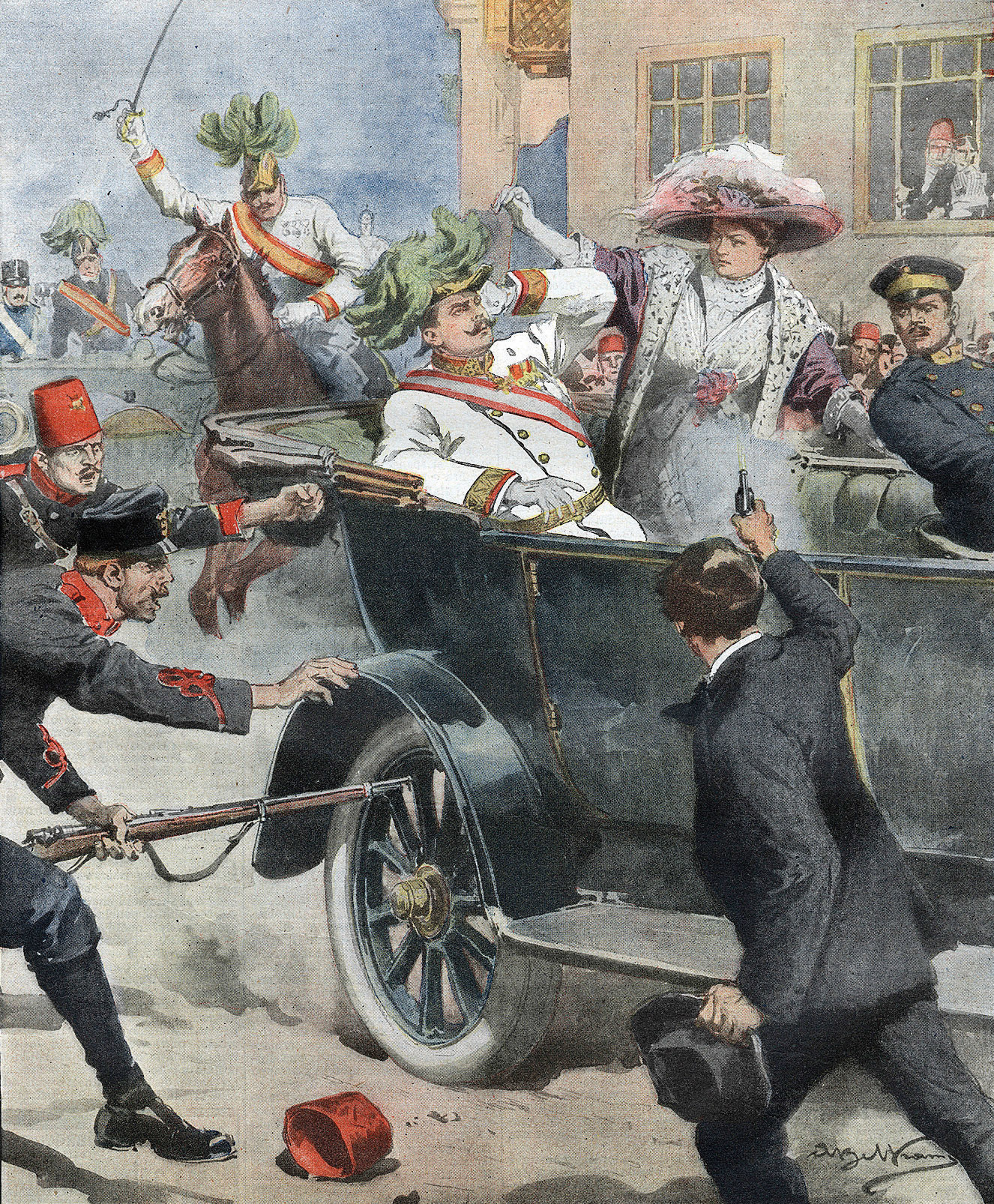Why Sarajevo?

I’m sure I don’t need to tell you that today is the 100th anniversary of the assassination of the Austrian Archduke Ferdinand and his wife at Sarajevo–the long-tailed and tangled fuse that began World War I. And I’m not going to go through the details of the assassination itself–though it would be a nail-biting thriller, complete with close calls and bad-decisions if we didn’t all know how it ends. Instead I’d like to spend a little time on the backstory.
Balkanization–Not Just a Metaphor
In 1878, at the end of the Russo-Turkish War, the Great Powers effectively forced the Ottomans out of the Balkans, which had been part of the Ottoman empire for centuries. The treaty signed at the Congress of Berlin gave Serbia, Romania and Bulgaria their independence. For many Serbs, independence was not enough. They felt that had been cheated of territory that should have been theirs, most notably Bosnia-Herzegovina, which had been part of Serbia in the distant past.* Serbia managed to seize more territory from the Ottomans during the Balkan Wars of 1912 and 1913, but Bosnia-Herzegovina remained out of reach.
Still officially part of the Ottoman Empire, Bosnia-Herzegovina was occupied and administered by the Dual Monarchy of Austria-Hungary. Control of the Slavic province was a mixed blessing for Austria-Hungary. On the plus side, it kept Bosnia-Herzegovina’s largely Slavic population out of the hands of both the increasingly powerful kingdom of Serbia and the empire’s major political rival, Russia. On the other hand, the addition of more Slavic peoples to Austria-Hungary’s multinational mix threatened to unbalance the empire’s uneasy pattern of ethnic rivalries.
Under Emperor Franz Joseph’s Dual Monarchy, created in 1867 in an ill-conceived attempt to win over Hungarian nationalists, Germans and Magyars in the twin kingdoms of Austria and Hungary ruled over larger populations of mostly Slavic peoples. Inspired by the creation of the new states of Germany and Italy, Austria-Hungary’s Slavic populations, including Serbian nationalists in Bosnia-Herzegovina, demanded political concessions that ranged from the freedom to use their own languages instead of German or Hungarian to succession from the empire. Many sought change by legal means. Others resorted to terrorism. Romanians nationalists resorted to bombs in response to Magyar attempts to suppress the Romanian language in Transylvania. Italian extremists blew up a railway tunnel in Trieste. And Serbian terrorists made six attempts to assassinate Austro-Hungarian officials in Bosnia-Herzegovina between 1910 and 1914.
The Black Hand Makes A Fist
In 1911, Dragutin Dimitrijevic the Serbian army’s head of intelligence, formed a secret society of extreme Serbian nationalist called Unity or Death, more commonly known as the Black Hand. Its goal was to re-unite the countries that had once been part of the medieval kingdom of Serbia. Terrorism was its preferred weapon. By 1914, the Black Hand had 2500 members, most of them junior officers in the Serbian Army. Only about thirty of its members lived and worked in Bosnia-Herzegovina.
Early in 1914, Dimitrijevic decided to assassinate the Archduke Franz Ferdinand, the heir to the Austro-Hungarian empire. The Archduke wanted to reorganize the empire, replacing the Dual Monarchy with a federalist system that would give the empire’s Southern Slav citizens, including those in Bosnia-Herzegovina, an equal voice with Germans and Magyars. Dimitrijevic feared political recognition of Slavs within Austria-Hungary would weaken their desire for succession and make it harder to gain support for a pan-Serbian state.
Historic Echoes on June 28
An opportunity for assassination presented itself that June. The Austro-Hungarian governor of Bosnia invited Franz Ferdinand to Sarajevo to observe the imperial army’s annual maneuvers on June 28. The choice of date demonstrated how little the imperial bureaucracy understood or cared about Serbian nationalism. June 28 was an important date in Serbian history. Some would argue that it was THE important date: on June 28, 1389, a Turkish army defeated Serbian forces at the Battle of Kosovo, ending the medieval kingdom of Serbia and beginning five centuries of Ottoman rule.
From the perspective of the Black Hand, the Archduke’s arrival in Sarajevo provided the perfect target at the perfect time.
*The idea that “It was ours once several hundred years ago, so it should be ours today” almost guarantees conflict between neighboring states.




